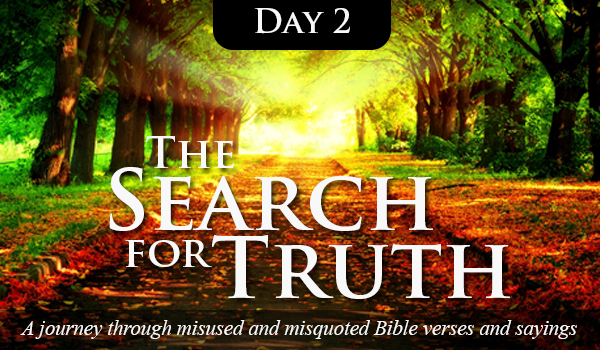
“To thine own self be true.”
For decades, the King James Version of the Bible has been one of the most popular. Whether or not it is the most accurate translation is not the point of today’s devotional. My point is that when we see a common saying and it is in this old English style, we tend to assume that it is must be from the Bible. Nope.
Perhaps most of us are too separated from our high school English classes, but this sentence was actually penned by the late great William Shakespeare and his notable work, Hamlet. More specifically, it can be found in Act I Scene III where Polonius is giving advice to his son, Laertes, before he leaves for Paris.
There’s a litany of fatherly advice in this passage. One of these nuggets is: “This above all: to thine own self be true, and it must follow, as the night the day, Thou canst not then be false to any man.” Interestingly, another familiar saying we still use is just a few lines before: “Neither a borrower or a lender be…”
Anyway, being true to yourself is certainly something we may say to our children before they go to a high school party or go off to college. This would perhaps be along the lines of “Don’t do anything foolish” or “Make me proud.”
As believers, we must go one step further since we represent Christ to the world. Be true to Him.
Some Biblical advice for our children as they go out:
“We are therefore Christ’s ambassadors, as though God were making his appeal through us.
We implore you on Christ’s behalf: Be reconciled to God.
God made him who had no sin to be sin for us, so that in him
we might become the righteousness of God.”
2 Corinthians 5:20-21